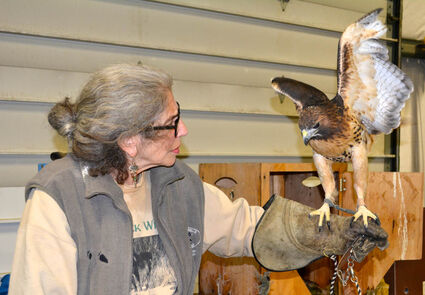Indian Time Notes the Passing of Wendy Hall
Wildlife rescuer extraordinaire

November 9, 2015, Akwesasne. Wendy Hall holds a peregrine falcon whose wing was permanently damaged. This falcon will never return to wildlife but is well taken care of at the Adirondack Wildlife Refuge.
Wendy Hall, co-founder of the Adirondack Wildlife Refuge passed away on Sunday, January 16, 2022.
Throughout Wendy's visits in the North Country, Indian Time had the honor to meet and interview her several times. The last was on Saturday, Novembe...
For access to this article please
sign in or
subscribe.



Reader Comments(0)